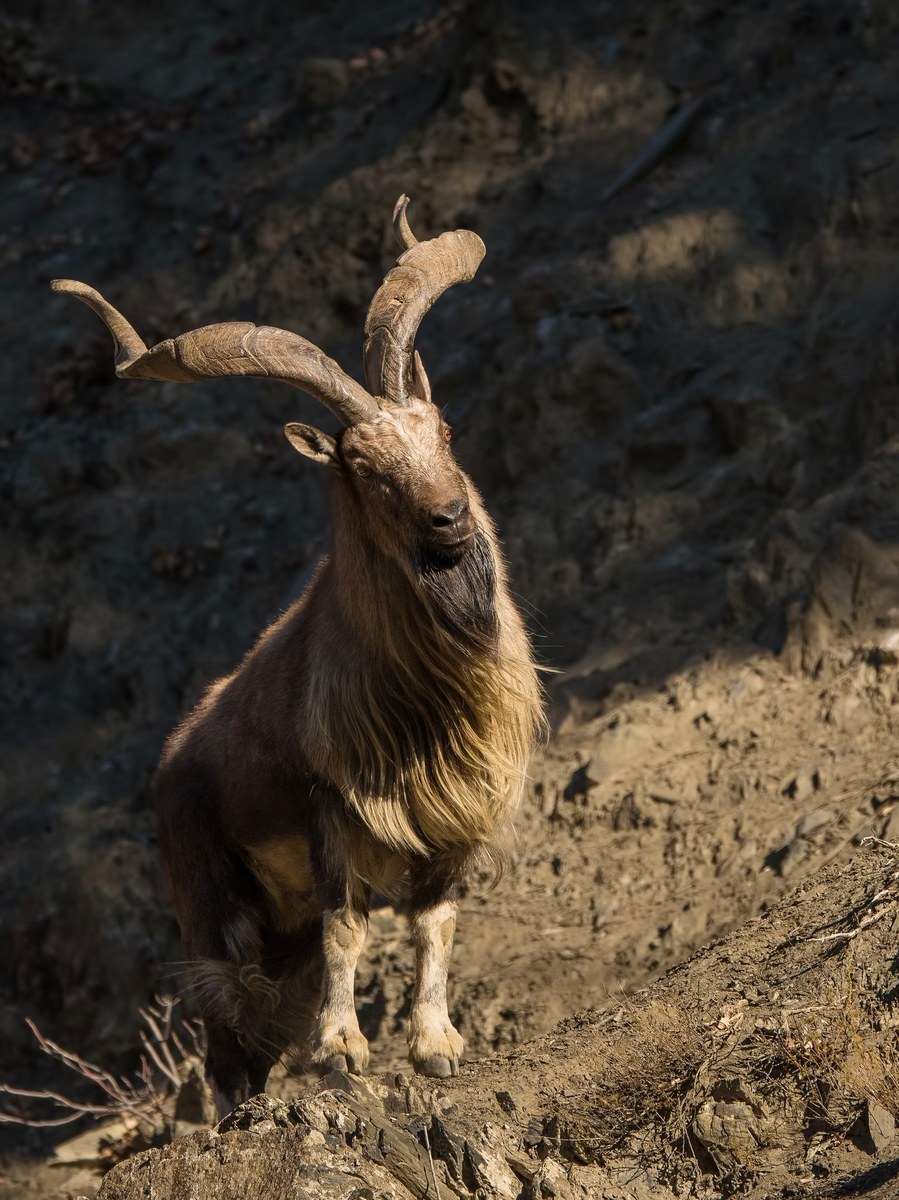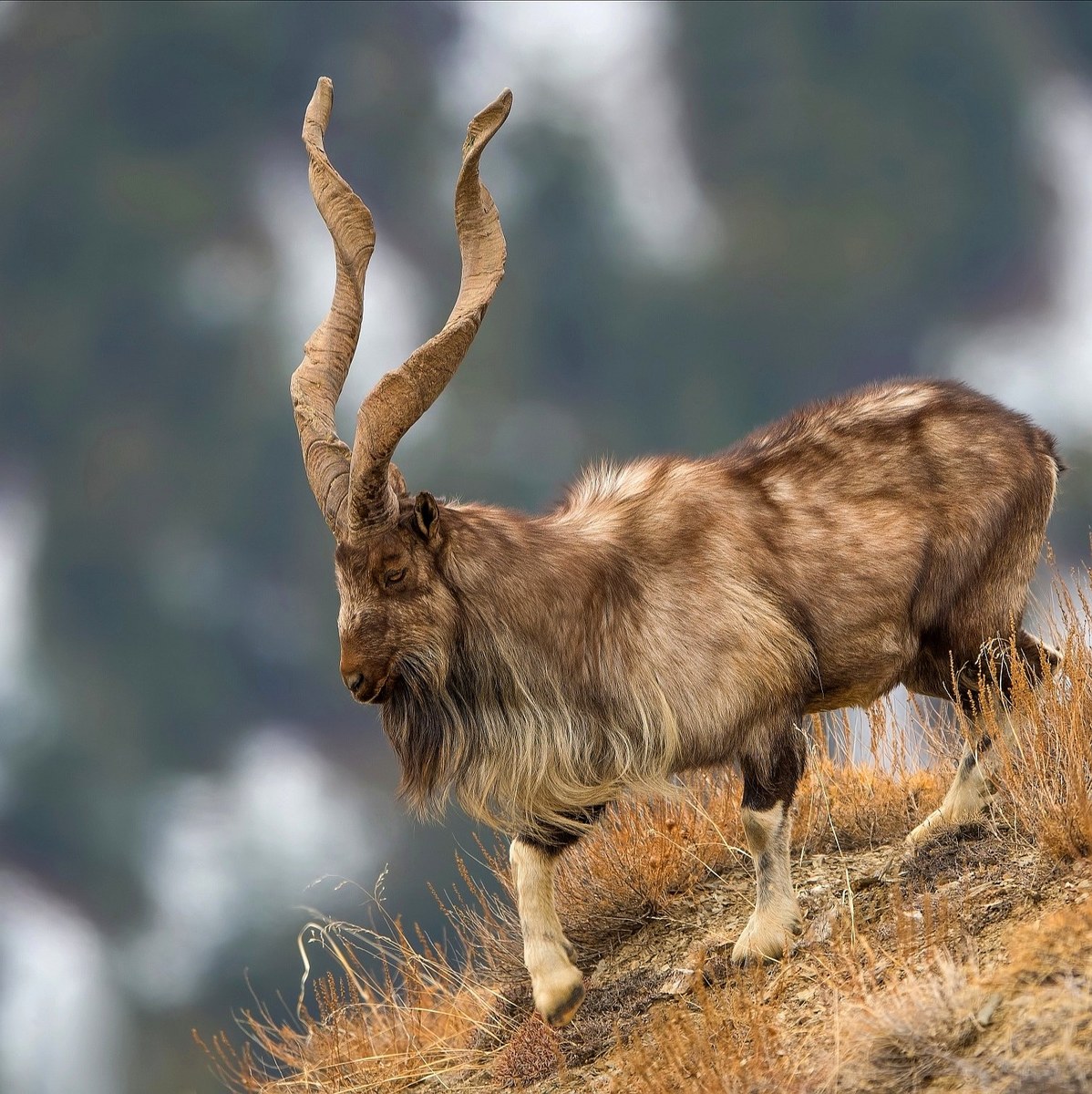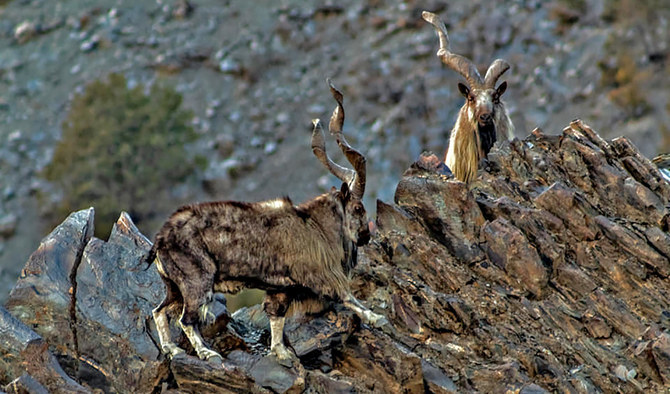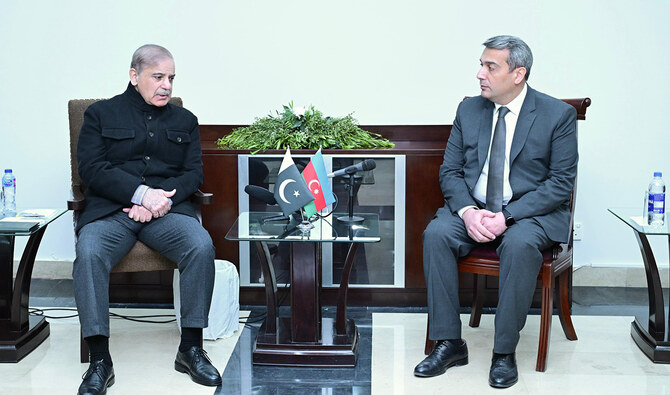ISLAMABAD: Pakistan’s national animal, a majestic horned mountain goat called the markhor has been going missing in a major national park in the country’s northwestern region in huge numbers over the past two years, according to wildlife activists working at the park.
In 1984, Pakistan established the Chitral Gol National Park (CGNP) spread over 77 sq. km in northwestern Khyber Pakhtunkhwa province to provide shelter to endangered animals, especially markhor. The sanctuary is also home to snow leopards, ibex, Himalayan lynx and other vulnerable species.
By the government’s count, between 2019-2020, the numbers of markhor at the park fell to 2,000. This year, the CGNP Association which is run by the local community in Chitral and comprises community watchers, says less than 1,000 markhors remain, pointing to poaching as the primary problem.
This would signal a more than 1,000 figure drop in markhor numbers in less than two years. Arab News could not independently verify this information.
“The government in its own report admitted the population has decreased from 2,865 in 2019 to 2,000 in 2020, which is a significant reduction. But according to our community report, it has reduced to below 1,000,” CGNP Association Chairman Saleemuddin told Arab News.

This image shows Kashmir markhor, a large goat species native to Kashmir and northern Pakistan, is pictured at Chitral Gol National Park (CGNP) in Khyber Pakhtunkhwa, Pakistan, on June 24, 2021. (Photo courtesy: @ZahranCR/Twitter)
“The ministry of climate change has stopped releasing the federal government endowment funds that were used to pay salaries to community watchers, resulting in poaching which has caused a massive decline in markhor population at the park,” he said.
In 2000, to protect the reserve from poachers, the park recruited wildlife ‘watchers’ from local communities. In 2019, the markhor population boomed according to the KP wildlife department.
Now, members of local communities point to poaching in the absence of unpaid community watchers as the key factor behind the massive drop in markhor numbers. These community watchers used to work under government-hired wildlife wardens to protect the endangered large goats from poachers.
The government doesn’t think poaching is the problem, and points to border fencing along the Pakistan-Afghanistan border as a hurdle in counting markhors in the reserve.
“The border fencing has caused a restriction in free movement which affects the counting,” Malik Amin Aslam, Prime Minister Imran Khan’s adviser on climate change, told Arab News.
“The markhor used to migrate to Nooristan province in Afghanistan across the Durand Line during summer. Due to fencing along the border, the movement is restricted, which has led to stopping the annual return of markhor to the CGNP.”
The CGNP is one of the prime areas for markhor preservation alongside other national parks in GB, Aslam said, and said he hoped this would remain the case through community-based efforts for protection of the endangered species.
“It is part of the PM’s Protected Area Initiative (PAI) and I have myself visited the sanctuary last year,” Aslam said. “It’s a unique habitat with very dedicated wildlife watchers and thus allows confirmed viewing of markhors for visitors.”
Aslam said predatory kills of the large goat had drastically reduced from 80 hunts in 2016 to only four in 2020.

This image shows Kashmir markhor, a large goat species native to Kashmir and northern Pakistan in Chitral Gol National Park (CGNP) in Khyber Pakhtunkhwa, Pakistan, shared on Aug 14, 2021 on social image. (Photo courtesy: @ZahranCR/Twitter)
The Pakistani climate change ministry will start a markhor population survey after the first heavy snowfall around mid-December, when the animals are restricted to lower elevations, he added.
“The total numbers are almost the same but will be verified again in December.”
The markhor is listed on the International Union for Conservation of Nature’s (IUCN) Red List as “threatened” since 2015.
There is a third theory. A senior KP wildlife department official told Arab News it is climate change causing the decreased markhor population in CGNP, and added that the large goat simply didn’t descend to lower elevations because of rising temperatures.
“If there is no high snowfall then these animals do not move down and just remain in high pastures, which is one of the reasons for the reduction in their count,” Sarmad Hussain Shah, the KP wildlife department’s divisional officer, told Arab News.
CNGP’s Saleemuddin however, doesn’t think migration or climate change is causing the drop in numbers.
“If it [drop in markhor population] was due to migration, it would have also affected the ibex population, but park authorities have shown an increase in ibex numbers during this period.”
He said authorities had allowed trophy hunting in other parts of Chitral but not in CGNP, which had reduced community involvement in protecting the markhor against illegal hunting.
The KP wildlife department last week auctioned a permit for trophy hunting of a markhor in Chitral’s Toshi-I game reserve for a record fee of $160,250.
As per the rules, 80 percent of the hunting fee goes to the local community for their welfare and conservation of local animal species, while the remaining 20 percent is deposited in the national exchequer.
The markhor count survey slated for December will be a starting point to answering some questions about the missing markhors of CNGP, and will involve local communities, IUCN, World Wildlife Fund (WWF) and other research organizations to get authentic data for this year.

















